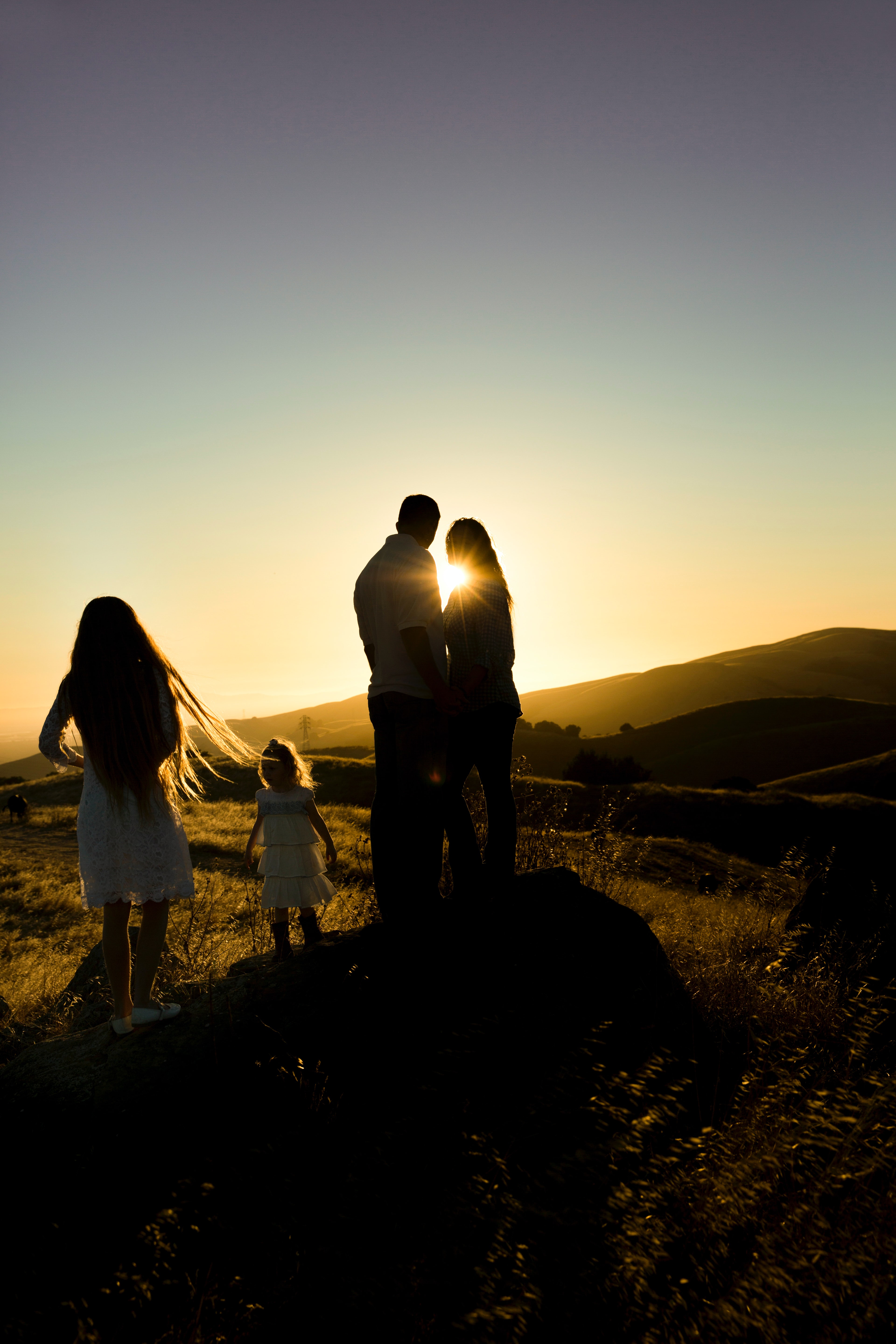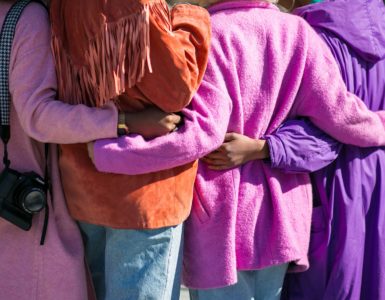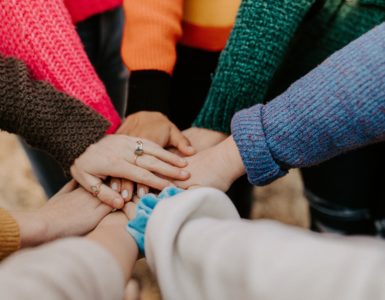The biological family, child, and parents form the adoption triad. There is an attachment to the triad that can’t be denied. Love and loss are seen throughout in many different ways. The sense that there is long-term grief or what some describe as a hole in their being is often felt by adoptees. Many times the question or feeling of belonging not to you, but with you comes through for all participants in the adoption triad.
Biological Family
Choosing adoption for your child or a state agency placing your child for adoption includes a firmly attached rollercoaster of emotions. There is no right or wrong way to feel these emotions. A sense of loss is often present but a connection may also be felt. It is important to honor all of the feelings and work through them. When we think about belonging not to you, but with you, one can’t help but associate it with grief.
The decision of adoption has a finality to it that may take years to fully understand its impact on you. You may have feelings of understanding or relief when your child is placed with their family. Other times, you may have feelings of grief and wonder how you continue to connect. I’m only speaking of a few feelings in this article but as we know, there are many more. It is important to know when your feelings are getting too big and that it is okay to reach out to others. Sometimes it is important to reach out to specific resources for biological families to find others that truly understand.
Here are a few ways you can honor the feelings of belonging not to you, but with you:
Open adoptions or adoption plans can help with all of these feelings. They can help establish set times and expectations of continued updates and contact with your child. It is important to be honest with the lawyers or the program that is establishing this plan. Some may include cards, pictures, and letters a few times a year. Other plans may have in-person visits.
Creating a special space for the feelings of your child may help. This could be in a journal or even a physical display. Some have planted trees or have a special statue related to their child. Others have created memory boxes where they store letters and such from the family. It is important to be mindful when creating this space that it will be safe for you to have your feelings. You may find that others may not understand but that’s okay.
Art or creative projects can be another way to honor your memories or assist you in feeling your feelings. Painting or making special picture frames has helped some. I have had others make special blankets that they can sit with when they are experiencing that sense of belonging not to you, but with you. You may feel intense feelings around loss and adoption.
The Child
Having adopted three children, I can assure you that each child has had their unique path regarding belonging not to you, but with you. They have expressed their loss through words and physical aggression. At times, they needed additional therapeutic support. However, our relationship is continually growing. I learned early on to allow a space for each child to look at their personal experiences with belonging not to you, but with you. My oldest child holds the most memories of being with their biological family. He has found processing them in therapy to be the most effective. My middle daughter often will work through creating art. My youngest has the most struggles due to trauma. All of it is a continued work in progress regarding the biological family.
One area that I had not realized often comes up with my children is how they have lost time with me and my partner. They often speak of craving or losing the time they would have had with me had they been birthed by me. They tend to fantasize about what they would look like or how different their life may have been. This may happen to a lot of children and giving them the voice to talk about it important. Where this surfaced was when school projects around family trees came up.
The teacher set these projects with the expectation that all the children had access to their birth history and photos. My children had some but it became problematic. These projects were to be told in front of the class. My children accepted they were adopted but didn’t necessarily want to share their whole story. It took a lot of meetings and a little bit of a momma bear attitude to get the school to understand the impact of their request. I know my children were not the only ones struggling with this. I saw this as a social worker for foster children. Although that time was difficult, it did open up important conversations between my children and myself regarding attachment and family.
Here are a few suggestions on how to best help your child around belonging not to you, but with you:
Open mind, open Heart! Understand that your child needs a safe place to process all they have experienced. You are going to have hard feelings regarding the adoption journey. They will too. It is easy to forget that your child sees the world through their own eyes. The hustle and bustle of daily life can take over the necessary attachment work. Checking in with them regularly is important. When my children were very young, I would incorporate an age-appropriate book about adoption and attachment. As they got older, I would and still do verbal check-ins. I make sure we are alone and in a quiet space. With my youngest, it has sometimes been helpful to do this with therapeutic support. You will learn the best way to create the space of sharing for you and your child.
Take time to acknowledge the adoption triad. Some children enjoy celebrating gotcha or adoption days with a special treat/outing. Others do not like the attention drawn to those days as it brings up feelings of loss. The words “forever” or “adoption” have a lot of power behind them. Children often crave the need to belong and want a family. My daughter struggled with this the most. She felt that those words minimized her experience with her biological family.
She also has pointed out that she has just wanted to belong. Celebrating the adoption day, particularly being reminded it is forever, implies that this has not happened. To her, it imposes the expectation that a sense of belonging still needs fostering because she doesn’t belong. I felt so proud of her when she told me this as I saw it only through my experience. It comes down again to establishing open communication to better understand what your child needs.
Establish a safe place for external expression regarding their feelings around belonging not to you, but with you. This may be through art or journaling. It may be having a special piece of jewelry or trinket that acknowledges their special day with you around their adoption. You may help them cherish or keep important items from their biological parents. They may have come to you with a belonging that seems tattered or they outgrow. It is important to check the memory and maybe be the keeper of it until they are older.
Each of my children has certain things from the biological parents that are important. I’ve created a shelf in their room and bins to store these items. I allow them to share them with me and tell me their story. It is not my job to tell them their story about these objects. Oftentimes, my children make up stories but I make sure to listen with intent. We all need to be validated and heard; it is the same for our children.
Parenting our child around our feelings and theirs
This is one of the hardest articles I have written because the feelings that I have experienced around belonging not to you, but with you have been truly challenging. Attachment work is hard at times. It is not to be taken for granted. Some children adapt to their families with more ease than others. This does not mean that there is no work to be done. It is important to understand that at times you will have feelings around their attachment to their biological family. This can be increased when your child has increased feelings or attachment concerns.
Here are a few ways to acknowledge and help you through your feelings about belonging not to you, but with you:
Talk about your feelings with a trusted person. It is important to know that although adoption brings a lot of joy and satisfaction, there can be darker feelings. Some feel depression symptoms related to broken expectations of what you thought your family would be like. It is hard to truly know how your child’s placement in your family will affect each member. Learning from and loving them will be ongoing throughout the process. It may be helpful to reach out to adoption support groups or therapists that focus on attachment work. This can help produce a productive conversation around expectations and feelings.
Allow yourself space to nurture your needs. If you have struggled with infertility or child loss before growing your family through adoption, making space is important. Some feel keeping a journal or documenting their experience helps them process the losses and gains. There is an unspoken expectation that once our child or children are placed, our losses will feel whole. In many cases, this is not true. You will feel many complex emotions related to your journey. Some may have found it helpful to plant a tree or find a physical way to keep those memories going.
The biggest way to help yourself is by accepting your new normal. It is easy to get wrapped up in your thoughts on how and what your family will be. You will have expectations of what parenting will feel like but the reality is often very different. It doesn’t matter if this is your first child or if you are blending with others. It is human nature to want to have control over a situation but in parenting, one can feel very out of control.
I remember when my first children were placed, I had notions that we would discover the world together, hand in hand, and that I would be their greatest teacher. Looking back, they have been my greatest teacher. I had to learn to pace myself and set my expectations aside. Things I felt were important to teach were not always necessary or received by my children as gifts.
I remember when my daughter gave me her first eye roll when I purchased her first Mary Jane shoes. Apparently, Mary Janes were not cool and I quickly learned that cowgirl boots were her thing. I felt my heart dip as I realized that I had not taken the time to consider her needs. In some ways, it felt like a failure. I just knew I loved mine growing up and thought she would too. I quickly let go of what I wanted for my family and decided to see the world through their eyes. Sometimes it was hard because of all they experienced but showing them I was willing to listen and let them lead (safely) helped with our attachment.
There are so many ways we can convince ourselves we do not belong to another. I caution this way of thinking. We may not be able to have physical contact with our loss, however experienced, but we can make a safe place for it. Introspection is essential if your feelings of loss are getting too big. This may be the time to reach out for additional support. There is nothing wrong with asking for help. It is important no matter what role you play in the child’s life.




